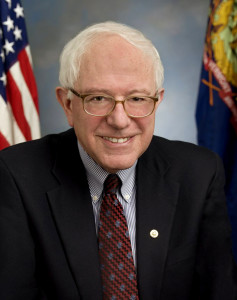MaNdOs PoSt
I have even less truck with political YouTube than ordinary TV. But it has come to my attention that there is someone named “Joe Rogan” who has achieved a certain level of fame and popularity by doing independent online interviews of politicians, so much so that Democratic primary candidates feel the need to appear on his show. Another thing I have learned is that this Rogan person appeals to a particular demographic that is, at present, not considered a reliable source of votes for the Democratic Party–or indeed any party that is perceived by television media as being accommodating to any concern considered “left-of-centre” by the prevailing dispensation.
But what brought this Rogan person to my attention was the fact that the current left-wing Democratic primary star, Bernie Sanders, gave an interview on Rogan’s show and obtained some kind of positive review (endorsement?) from him, and this has led to a certain degree of consternation and argument in the online left that has broken down on the usual lines: roughly speaking, “guns-and-butter” leftists vs. “woke” identitarians. I haven’t seen the interview and probably never will. So I guess I can’t really take a side, as I’m not willing to do the basic research of watching Rogan’s show. However, watching the meta-show, so to speak, has proven moderately illustrative about the meta-issues that divide the online left.
The conflict is basically this: As Sanders is the nominally “socialist” candidate in the US presidential elections, and circumstances have (like Corbyn?) coalesced to give him at least a plausible shot at the Oval Office, his appearance on Rogan’s show as well as apparent endorsement can be seen as a necessary step at accessing support from demographics that, as I mentioned above, are not seen as easily accessible to left-wing candidates. Without increased support from this group, left-wing Democrats are forever doomed to failure as an identity-purist bastion representing marginalized groups, who, alas, can never form a political majority that takes power. Consequently, if Sanders is serious about taking power, he has no choice, and in some sense, it would be practically immoral to refuse to appear on this widely-viewed show when the platform is being offered to him under friendly conditions.
At this point, we must examine why someone may expect Sanders to refuse an appearance on a show like Rogan’s. Again, from discourse that surrounds it, I gather that not only does Rogan appeal to demographics deemed to have generally retrograde views, he does so by publicly sharing some of those discriminatory opinions. (I haven’t bothered to figure out what those are but I’m guessing stuff like a little light racism, and transphobia, and so on.) Consequently, Sanders’ presence on the show may be construed as prima facie evidence of complicity with these oppressive discourses. The counterargument is obvious: Sanders is being given a friendly opportunity to draw in support from groups who live in a media environment that predisposes them to retrograde views, and thereby eventually mitigate (by winning power) the harm done by those viewpoints.
But this counterargument does not satisfy the critics of Sanders’ actions. Some of them are motivated by sheer hypocrisy, because their own preferred candidates often participated in the stigmatization of minority groups or associated with those who do. Other critics, however, have more sincere personal motivations motivated by experience or feeling towards Rogan’s target demographic. That is, they see Rogan fans as representative of a group that has collectively made their lives more difficult or acted in a manner harmful to them. The association of the principal left-wing candidate with Joe Rogan awakens an old fear: that this is the point at which they and their concerns are dismissed as inconvenient, unhelpful, or corrosive to the holy grail of a power-taking electoral politics motivated by class interest.
This is not an empty fear. Quite a lot of “economic” leftists have a lot of difficulty taking the justice claims of (for example) gender identity seriously, as opposed to subsuming them into a general concept of economic well-being and ignoring the bits that don’t fit:
I’ve listened to Rogan and I’ve heard from cheerleading coaches and I’m far more worried about what Bain Capital is doing to women and LGBTQ kids.
— Matt Stoller (@matthewstoller) January 24, 2020
This and other reactions are precisely what many people who object to Sanders’ participation in Rogan’s show fear is already happening — that once again, the claims to justice that they finally felt were being recognized were again going to be sidelined or dismissed as frivolous or luxurious*, faced with the pressing need of recruiting the “down-to-earth,” “alienated” Real People.
I don’t know if this is true. It’s possible that a sort of political contagion will take hold, such that the stereotypical Rogan listener will start to care about women’s pay equity or cultural appropriation by increased affiliation with Sanders’ politics. I suppose it largely depends on how Sanders ends up running his campaign, should he win the primary. But I do know that this is an instance of a larger issue that cannot easily be swept under the carpet of unity.
* For example, pronouns and the like. Once upon a time, I myself might have seen English gendered pronoun issues as frivolous until I actually discussed the matter with some of their proponents and found that to them, these and related issues of recognition have tangible consequences.



 Hi. I’m the blogger/artist formerly known as Pachacutec. If you are old enough to remember me as a lefty blogger, you’ve been on this internet thing too long. But I digress.
Hi. I’m the blogger/artist formerly known as Pachacutec. If you are old enough to remember me as a lefty blogger, you’ve been on this internet thing too long. But I digress. The obvious similarity is, actually, Trump. The same type of mismanagement and laziness. Biden’s politics are different, and essentially the same as Obama’s, but a bit more retrograde: Biden is a neoliberal corporatist.
The obvious similarity is, actually, Trump. The same type of mismanagement and laziness. Biden’s politics are different, and essentially the same as Obama’s, but a bit more retrograde: Biden is a neoliberal corporatist.